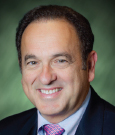At the opening press conference of the 56th Annual Meeting of the American Society for Radiation Oncology (ASTRO), 2014 President Bruce G. Haffty, MD, FASTRO, Professor and Chairman of the Department of Radiation Oncology at Rutgers–Robert Wood Johnson Medical School and Associate Director at the Cancer Institute of New Jersey, New Brunswick, outlined important initiatives that the Society hopes will go a long way toward improving patient care, patient safety, and ensuring appropriate use of radiation therapy and newer techniques. They include a national registry for stereotactic radiosurgery patients and the Radiation Oncology Incident Learning System™ (RO-ILS).
Stereotactic Radiosurgery
The stereotactic radiosurgery registry represents a joint partnership between ASTRO and the American Association of Neurological Surgeons (AANS). This comprehensive databank will define national patterns of care in radiosurgery, provide data to inform treatment benchmarks, improve patient care, and hopefully lower the cost of care for patients.
Dr. Haffty told listeners that the data will be gathered over the next 3 years from 30 diverse, high-volume sites with stereotactic radiosurgery–specific data.
“Multiple groups are putting their data together. We are excited about this initiative,” Dr. Haffty said. “The registry provides new opportunities for achieving major advances in the management of patients with complex problems such as brain tumors, vascular malformations, and functional disorders. We are also getting support from the Neurosurgery Research & Education Foundation,” he said.
Stereotactic radiosurgery is a minimally invasive approach that utilizes imaging guidance and stereotactic principles to deliver radiation to targeted cells in the body. It has gained a prominent role in the treatment of brain metastasis, benign brain tumors, and arteriovenous malformations.
New data suggest that stereotactic radiosurgery will have an expanded role in treating other malignancies, including non–small cell lung cancer and pancreatic cancer. As its applications expand, registry data will help inform practice.
A Scientific Advisory Committee will oversee the registry, approving sites that contribute data, plan and manage data collection, develop plans for data analysis, and develop procedures for responding to requests for access to registry data. The committee will also review and approve public presentations of the data.
The data will be made available to the scientific community and the public, but no patient names will be included.
BrainLAB is providing financial sponsorship, and other sponsors are actively being pursued.
RO-ILS Safety Inititative
The Radiation Oncology Incident Learning System, a joint effort of ASTRO and the American Association of Physicists in Medicine (AAPM), is a patient safety initiative. Dr. Haffty called it the “centerpiece” of ASTRO’s Target Safely plan. Annual Meeting attendees were urged to participate by accessing the guide available via www.astro.org/ROILS.
Participation is open to all members of the radiation oncology team. Data on radiation errors or near misses will be submitted anonymously and will allow the radiation oncology community to be alerted to potential problems, Dr. Haffty explained.
The data collection enables detection of patterns related to safety. “The anonymity provides confidentiality and creates a secure environment for sharing internal incidents with a national database,” he said. Reports will be generated for dissemination, including aggregate data on events that occur throughout the country.
“Radiation is an extremely safe modality. Nonetheless, ASTRO wants to strive for zero errors. We want to evaluate our errors or near misses, learn from these events, and modify our processes to improve patient safety and quality, ” Dr. Haffty said. ■
Disclosure: Dr. Haffty reported no potential conflicts of interest.


